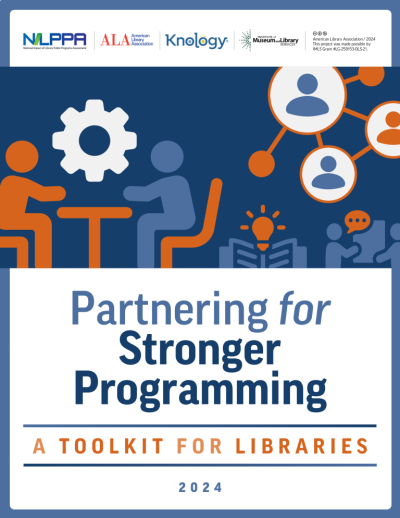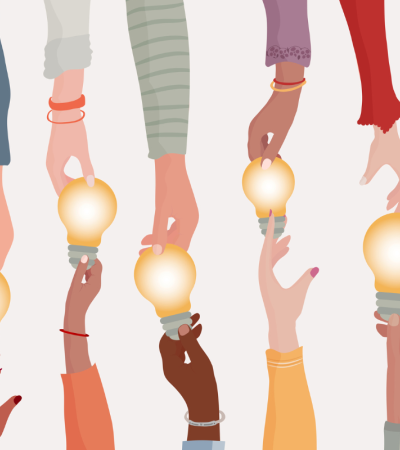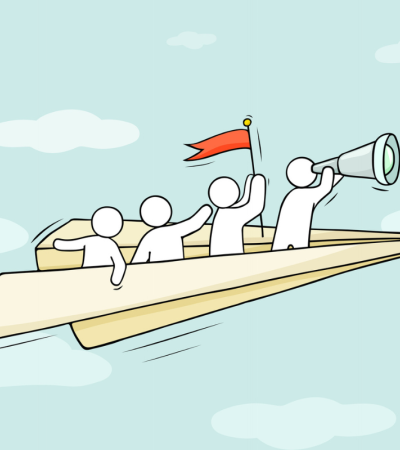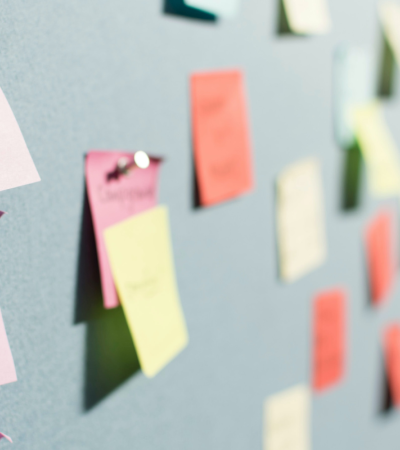Libraries do their best work when they work with partners. “Partnering for Stronger Programming: A Toolkit for Libraries" is a brand new, free resource created to help library workers consider the big-picture goals of library programming and determine ways to begin and sustain impactful partnerships.

The toolkit provides five tools for library workers with actionable steps to help partnerships grow sustainably, meet goals, expand organizational capacity, thoughtfully engage with partner audiences and more.
The five different tools can be used individually or in combination:
- Tool 1: Determining Goals: Why Do We Work Together?
- Tool 2: Determining Partnership Focus Areas: What Work Can We Do Together?
- Tool 3: Determining Contributions: What Do We Each Bring to the Table?
- Tool 4: Determining Partner Interactions: How Do We Work Together?
- Tool 5: Determining Strengths and Weaknesses: What Does a Successful Partnership Look Like?
The ALA Public Programs Office will collect use cases from libraries that have utilized the toolkit. If your library uses all or part of the toolkit, we invite you to email publicprograms@ala.org.
“Partnering for Stronger Programming: A Toolkit for Libraries” is an output of Phase 2 of the National Impact of Library Public Programs Assessment (NILPPA). In 2021, ALA received additional funding from the Institute of Museum and Library Services (IMLS) to help equip libraries with information and tools to help them successfully fulfill their roles as civic and cultural hubs.
Through NILPPA, ALA and Knology, a social science research nonprofit, are working to document the characteristics, audiences, outcomes, and value of U.S. library public programming. Learn more about NILPPA and its resources.
This project was made possible in part by the Institute of Museum and Library Services through grants LG-250153-OLS-21, LG-96-17-0048-17 and LG-62-13-0210-13, and by funding from the ALA Cultural Communities Fund.



